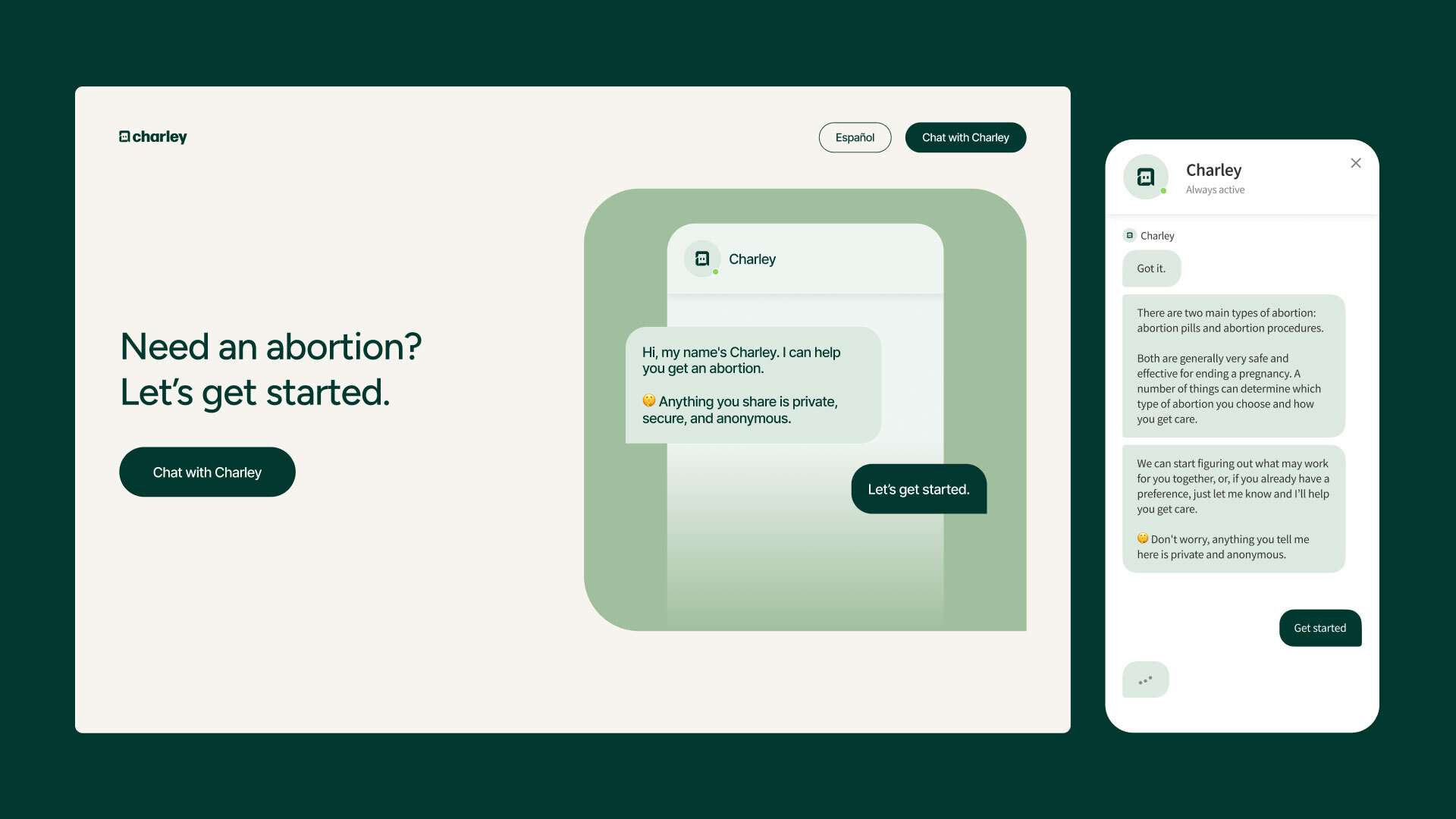Unless you’ve been living under a rock for the past year and a half (jealous, tbh) you know that the abortion landscape in the United States is cruel, messy, and complicated to say the least. About half of U.S. states enacted abortion bans before the point of fetal viability (or about 24 weeks) after Dobbs, and as a result, around 25 million women of reproductive age live in states where abortion is inaccessible.
Of course, banning abortion doesn’t stop people from needing abortion, which, as a reminder, might be life saving health care. As a result, women who might be experiencing their worst personal nightmare are suddenly tasked with navigating a legislative maze designed by politicians instead of consulting exclusively with doctors or scientists, while also avoiding misinformation about their health and dodging fake clinics called “crisis pregnancy centers.” Plus, they need to do it all while protecting their identity for fear a state government official will find them and charge them with claiming autonomy over their own body. The audacity!
If all of this angers you as much as it infuriates me, you’ll be thrilled to hear that reproductive rights superwoman, former president of Planned Parenthood Cecile Richards, developed a solution: Charley the abortion chat bot.
Charley is a tool designed to make navigating the abortion landscape as easy as possible, connecting abortion seekers with all the resources they need to access care. It can be hosted on any website with the idea being that those seeking abortion will come across Charley in the places they are already going to for research. From there, Charley will help them find everything they need to make a plan.
I sat down with Charley’s executive director Kiana Tipton who told me, “Our health care system is very complex… it’s too complex for one-size-fits-all solutions so we need tools that are specific to those who need support the most. We need to really be thinking about people in banned and restricted states, what is most helpful to them, and providing customized systems of support.” That support includes connecting patients to everything from clinics where they can make appointments, to organizations where they can order abortion medication by mail, and even the National Network of Abortion Funds where they can seek out any monetary assistance they may need to cover medical and travel costs.
Privacy is also top of mind for those navigating the abortion landscape, particularly in states with bans in place, which is why Charley only asks two questions: the user’s zip code and the date of their last period. The chatbot does not use any tracking tools like cookies or pixels, so users remain entirely anonymous to the tool. It even suggests additional ways abortion seekers can protect their privacy after logging off, like continuing to make appointments via a private browser and deleting their search history. Tipton said, “If you think about everyone who may need abortion care in America, and if we’re just thinking about people that live in New York, for example, maybe we’re not so concerned about privacy… But when we zoom in to the people that are most affected by abortion bans, who are a lot of Black and Brown women, low-income women, mothers, and young people, building solutions specifically for them is… the only way to build a real solution that drives equity.”
Charley is a huge advancement in the abortion space because it puts informed choice back into the hands of those who have had it taken away from them. Tipton agreed, “That’s kind of the core mission of Charley: empowering the person with all of the information they need so that they can make the informed decision about what’s best for them.”
While the fight for reproductive rights can feel grim, and recent court decisions in places like Alabama suggest Dobbs was only the beginning, Charley is a reminder that there are still concrete ways to protect abortion access for people living under bans. Cecile Richards told me “If it feels like things are particularly bad right now, that’s because they are! But… the same states with some of the worst anti-abortion laws are also home to some of the bravest and most resilient people I’ve ever met.” She pointed to Allie Phillips, who was denied an abortion and is now running for office in Tennessee, and the abortion providers and non profit leaders helping people get the care that they need. “That’s what makes me hopeful about the future,” she told me. “It isn’t going to happen overnight, but ultimately, this is a fight we are going to win.”
Charley is currently hosted on 16 sites with more to come. If you’re interested in hosting Charley on your website you can go to https://www.chatwithcharley.org/ and email [email protected].




















































